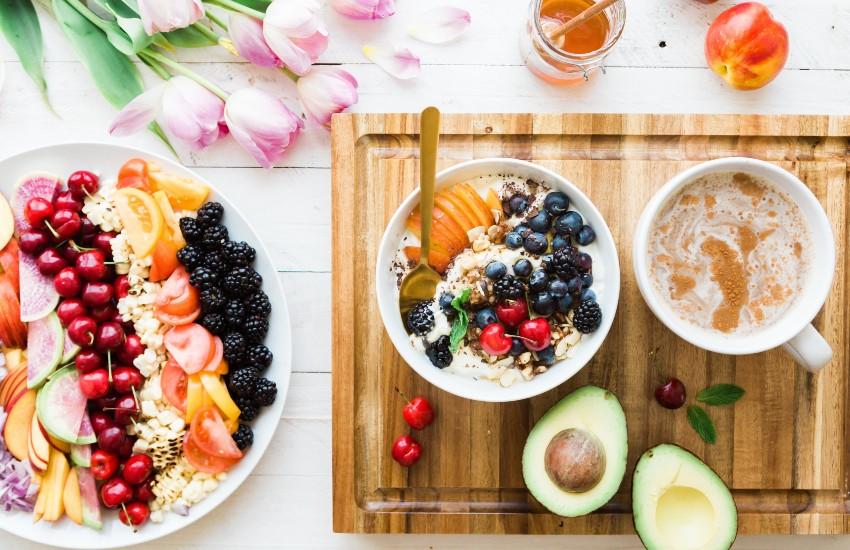Brain Food to Eat Before Your Interviews
Published: Sep 27, 2022

During job interviews, you want to be at your best. That means being as awake, alert, and sharp as possible. And to do that, you need to be well-rested and well-prepared. You also need to be well-fed—that is, you need to eat the right foods.
A bad diet (and even one bad meal) can make you feel drowsy, lethargic, and fuzzy-headed. Whereas a healthy diet (and even one healthy meal) can heighten your mental focus and awareness—and even help you overcome interview nerves.
So, to improve your brain functioning and ensure that you’re at your best during your next interview, here are the foods you’ll want to eat.
Whole grains
Watch out for simple carbs. A muffin might seem like something you can grab and eat quickly, but the simple sugars in most baked goods will quickly make you feel lethargic after a sudden sugar rush. And lethargic is not what you want to feel when the interviewer asks you to list your top three accomplishments from the previous year. Instead, choose foods with whole grains—such as whole-grain toast, oatmeal, and brown rice—to get long-lasting energy.
Omega-3 fatty acids
You’ll become sharper thanks to Omega-3 fatty acids, which support the formation of new brain cells and help build brain cell membranes—crucial in high-pressure situations like interviews. Fatty acids are present in salmon, mackerel, sardines, eggs, kale, walnuts, chia seeds, and flaxseeds, among other foods.
Vitamin B and E
Vitamin B can boost your motivation and energy levels while also preventing insomnia, anxiety, and low self-esteem, helping you immensely in interviews. Vitamin B is present in meat, dairy products, spinach, kale, broccoli, peas, beans, and nutritional yeast, among other places.
Meanwhile, Vitamin E can improve brain cognition and keep you healthy—it has antioxidant properties. Vitamin E can be found in almonds, peanuts, sunflower seeds, sunflower oil, bell peppers, beets, and spinach, among other foods. You can also take Vitamin E gummies if the above foods aren’t part of your regular diet.
Coffee
Coffee can increase the production of dopamine and adrenalin, which can give you a great temporary mental boost during an interview. It can elevate your levels of alertness and focus, reduce fatigue, and even dilate your pupils, which may improve vision. However, if you consume too much coffee, you risk crashing or becoming agitated. So, remember: coffee in moderation!
When to eat before your interview
If possible, try to eat about 90 minutes prior to your interview. That way, your food will be partially digested, preventing bloating and stomach discomfort. The energy you get from your food will last that time as well. As for what to eat, aim for a meal that has many of the aforementioned nutrients. An effective example is a chicken sandwich on whole grain bread with a slice of avocado. Try a handful of nuts, a piece of fruit, and some coffee if you don’t want to eat too much. Note that it’s essential to consume protein for energy.
What to eat or drink during your interview
It's a good idea to bring a bottle of water with you to in-person interviews (and have one handy during virtual interviews). This is not just to prevent your mouth from becoming parched but also to boost concentration and energy—which water can do. It’s also not a bad idea to bring a bag of nuts if you have a long in-person interview session with multiple meetings (and no built-in meal). This will provide you with energy that comes from the protein and fat, and it’s also good for the amino acids lysine and arginine—which, according to research, can aid in lowering anxiety.
Leah Collins is an experienced security engineer and part-time writer. She is young and ambitious, and hopes to share her knowledge and experience with anyone willing to learn something new.
